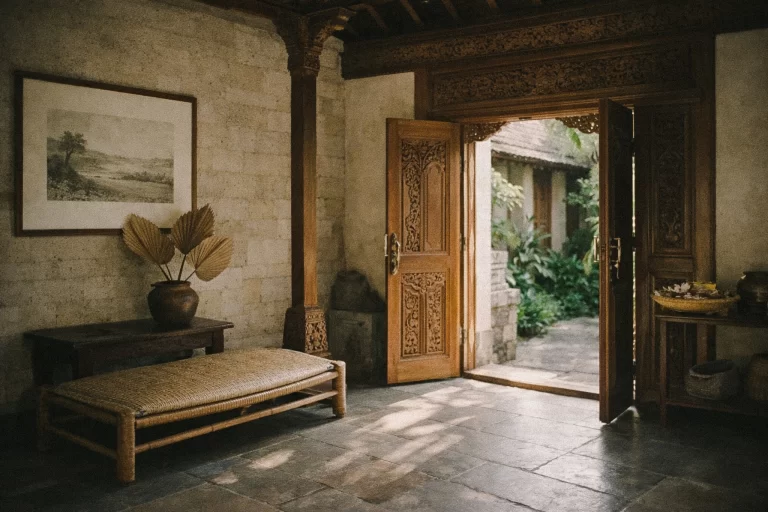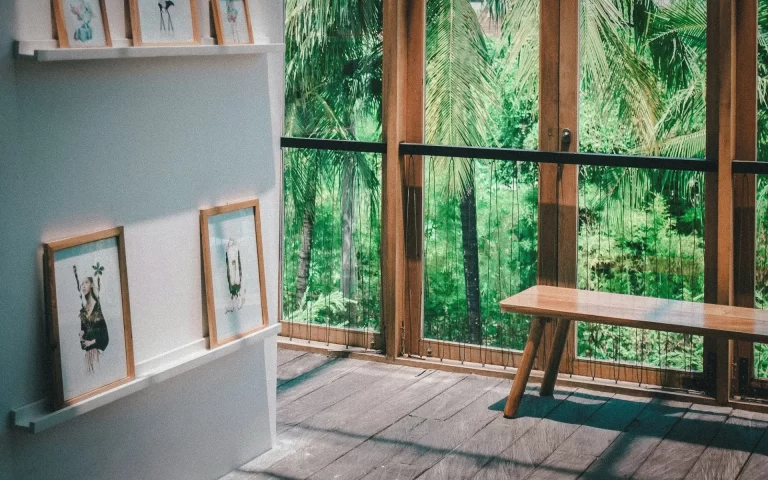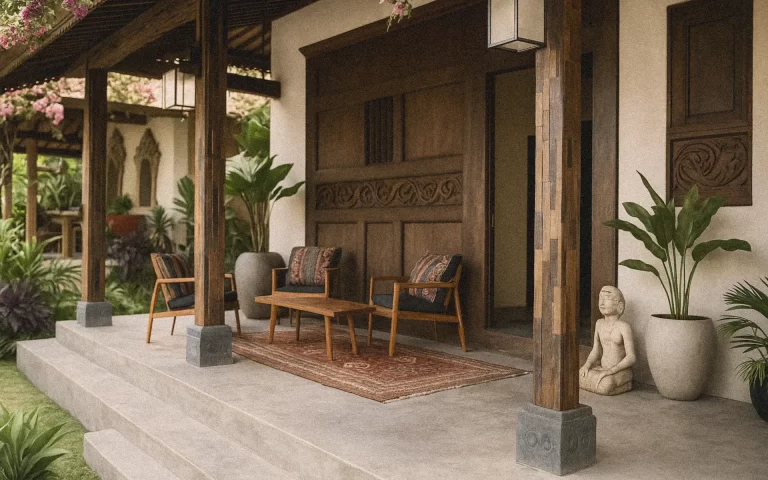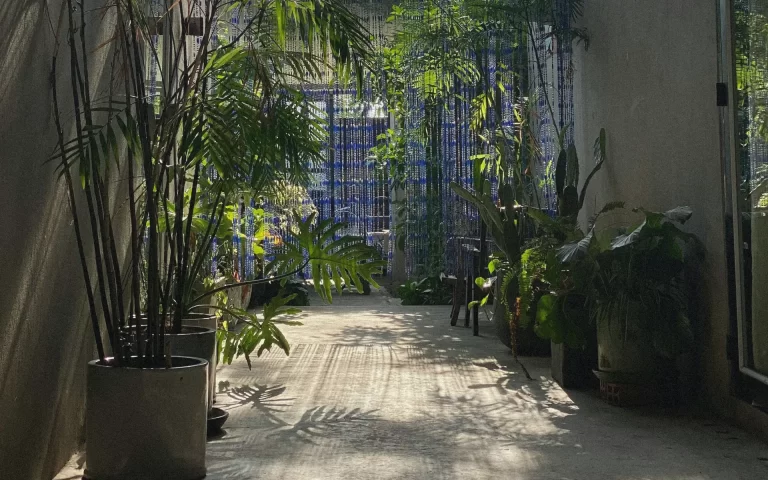Bali Renovation Permits 2025: How They Impact Your Renovation Timeline (and What to Do About It)
By Des Res Bali

One quick note before you read on:
We’re not lawyers, notaris, or government officials. Renovation permits in Bali aren’t always straightforward, and rules can shift as regulations evolve. What follows is based on common experiences and publicly available guidelines — think of it as a starting point, not a substitute for professional legal advice. Always consult a qualified notaris or legal advisor before starting any project.
This guide builds on our recent article, The Real Costs of Reviving Bali’s Classic Villas and Compounds.
Why Permits Matter
Renovating in Bali isn’t just about picking paint colors and hiring a builder. Even small changes to a property can require formal approvals. Permits protect you from legal headaches, fines, or — worst case — a renovation being halted midway. They also safeguard the long-term value of the property, since future buyers (or landlords) will want assurance that everything is above board.
From IMB to PBG: What Changed?
For years, the IMB (Izin Mendirikan Bangunan) was the go-to building permit in Indonesia. In 2021, it was replaced by the PBG (Persetujuan Bangunan Gedung), part of a broader reform in building regulations.
- IMB (old system): Attached to the land and often bundled with property ownership.
- PBG (new system): Focuses on function and use of the building — whether residential, commercial, or hospitality.
If you’re working on an older property, you may see references to both. A good notaris will help clarify what applies in your specific case.
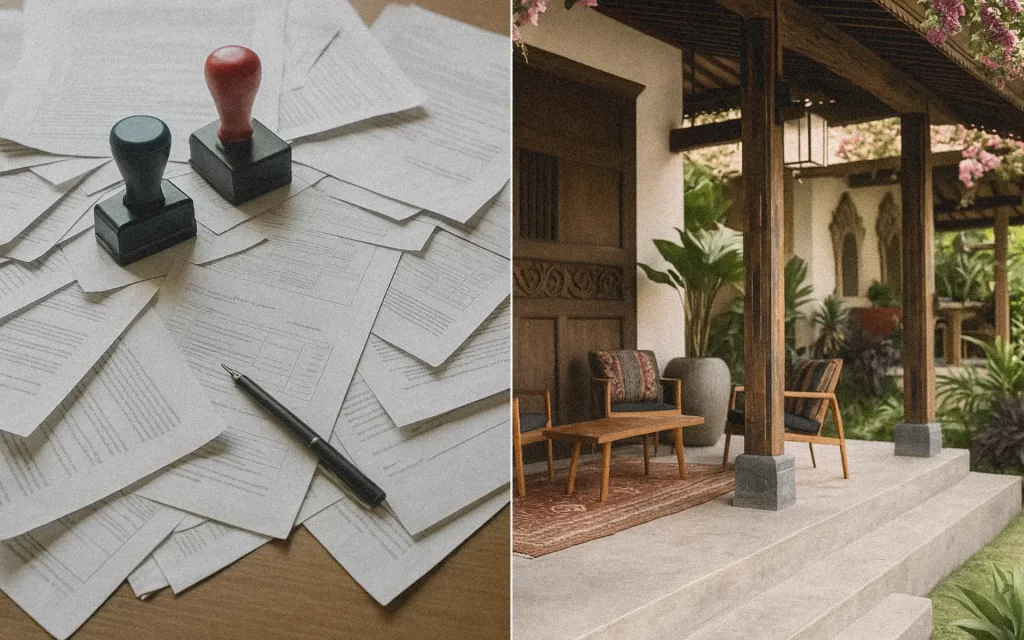
Key Permits You May Need
Every project is different, but here are the most common approvals tied to Bali renovations:
- PBG (Building Approval): Required for structural changes, expansions, or significant refurbishments.
- SLF (Certificate of Feasibility): Confirms that the building is safe and usable.
- Environmental Approvals: Larger builds (or properties near rice fields or waterways) may need environmental clearance.
- Traditional or historically significant homes: Certain joglos, colonial-era houses, or compounds with cultural value may require extra approvals.
Be aware that each of Bali’s regencies (such as Denpasar, Badung, or Gianyar) may have some variations in the permit process or additional local requirements, so it’s wise to check with the relevant local government office.
For more information on PBG and SLF permits, see Emerhub Bali’s guide on How to Apply for the SLF and PBG Permit in Bali for Construction.
The Role of the Notaris
A notaris is your key ally in navigating Bali’s property bureaucracy. They don’t just stamp documents — they liaise with government offices, confirm zoning, and ensure that your paperwork matches your property’s actual use. They also help verify that permits align properly with your land ownership documents, which is crucial for avoiding future legal problems. A trusted notaris can often save you months of back-and-forth.
Common Mistakes to Avoid
- Skipping permits entirely: It might feel faster, but it can cost you later.
- Relying only on your contractor: Contractors build; notaris handle legality. Don’t confuse the two.
- Assuming “small changes” don’t count: Even adding a pool or changing a roofline may require approvals.
Final Thoughts
Permits aren’t the glamorous part of a Bali renovation, but they’re essential, regardless of whether you’re starting from scratch or renovating an older property. Getting your legal foundations right means you can focus on design, craftsmanship, and all the beauty that follows. Think of it as insurance for your investment — boring on the surface, but priceless in the long run.

Want to dig deeper?
Here are some reliable places to start when researching permits in Bali:
- Indonesia Ministry of Public Works and Housing (Kementerian PUPR) — The national body behind building regulations and the PBG permit system.
- Bali One-Stop Integrated Services (Pelayanan Terpadu Satu Pintu – PTSP) — Your main gateway for permit applications, with some services available regionally depending on where in Bali your project is located.
- Local Regency Websites/Offices — For region-specific rules and processes, check the official sites for regencies such as Badung, Denpasar City, and Gianyar.
- Indonesian Notaris Association — A good resource for finding notaris professionals who can guide you through property and renovation paperwork.
Environmental Assessment Agencies/Consultants — For projects near protected areas or waterways, you’ll want to understand AMDAL (environmental impact) requirements from the outset.



